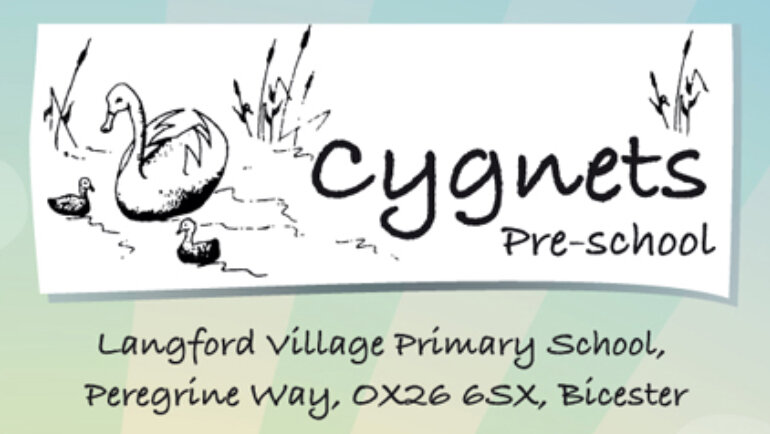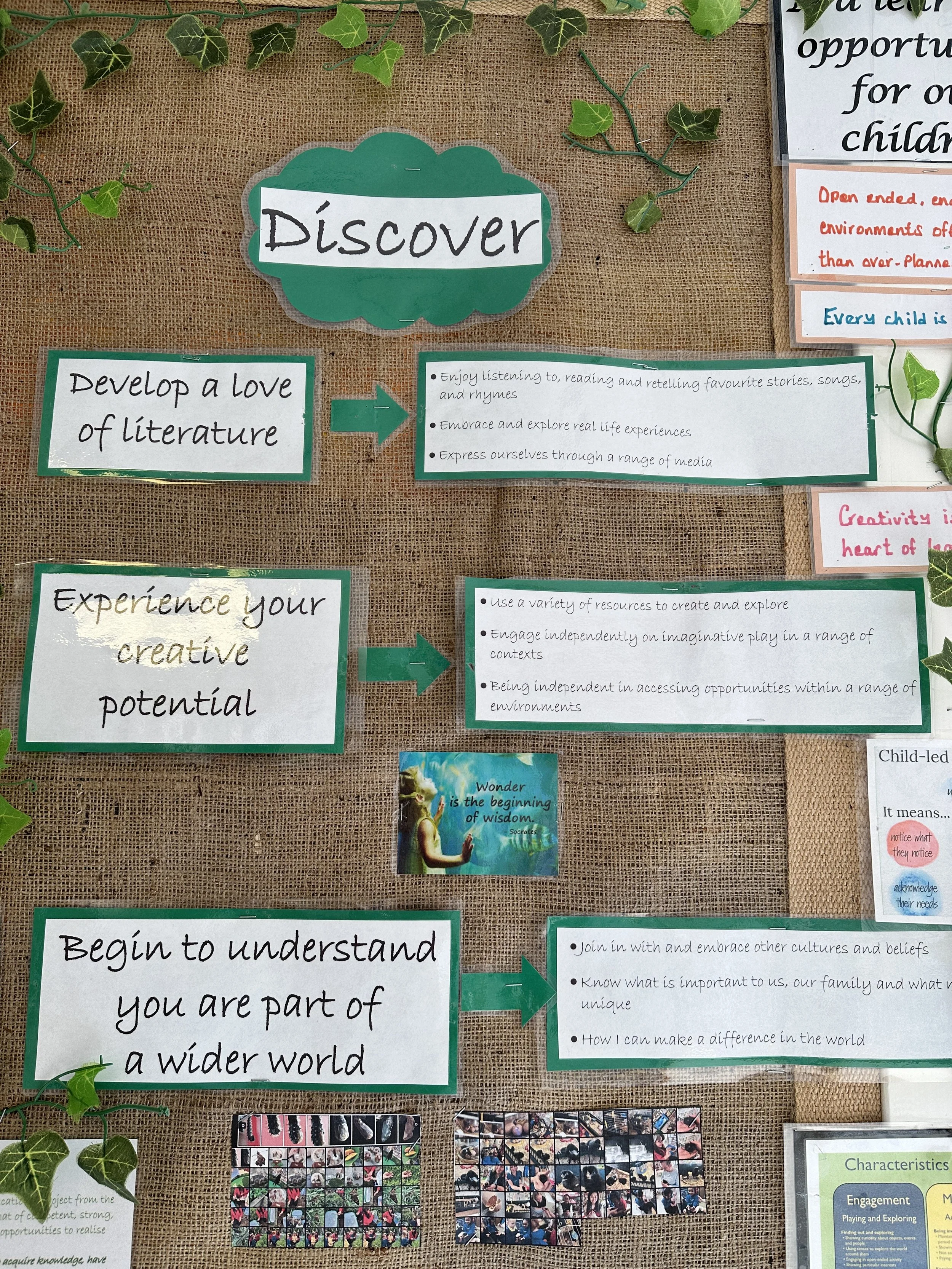Curriculum, Pedagogy & Reflection / Assessment
Curriculum (Intent)
Our children are always the core of our curriculum as they help create it!
Our curriculum intent is what we aim for our children to learn in the time they are with us, getting them ready for school & so underpins our everyday practice.
********************************************************************
Our curriculum is focused & centred around the individual child. We aim to embrace the interests of the children & be responsive to their curiosity & thinking. Our free flow indoor/outdoor approach allows children freedom to make choices & be an advocate of their own learning.
********************************************************************
‘I Wonder’ is our way of steering learning whilst keeping it child led, allowing the basis of a topic/theme to follow children’s interests. This gives us an opportunity to ‘engineer’ things if we feel we need to cover gaps.
********************************************************************
Our Early Years Educators are facilitators to children’s learning, their role is to observe, support & extend learning, offer meaningful opportunities & experiences whilst listening to the children & tuning in to their individual needs & interests.
Pedagogy (Implementation)
Our curriculum and practice is inspired by a fusion of pedagogical approaches.
*******************************************************
Reggio Emilia, one of the approaches is that of the world-renowned early years educational project from the city of Reggio Emilia in Northern Italy. In Reggio Emilia, the image of child is that of competent, strong, & amazing individuals who have rights & responsibilities, children are given the opportunities to realise their potential. Children are encouraged to express themselves in a variety of ways, referred to as The Hundred Languages.
“For us, each child is unique and the protagonist of his or her own growth. We also note that children desire to acquire knowledge, have much capacity for curiosity & amazement, & yearn to create relationships with others & to communicate”. Malaguzzi
*******************************************************
In the moment, another approach which has had a significant impact on influencing our practice is that of Anna Ephgrave & her in the moment approach to teaching & learning. This style of planning supports the EYFS 2021 cycle of observation, assessment & planning, however it is carried out on a moment-by-moment basis. This coupled with ‘I wonder’ helps foster a habit of compassionate curiosity as it inspires more creative thinking from teachers when planning for children’s interests. Progress, development, interests, & experiences are recorded & reflected upon after they have happened.
“With planning in the moment, children are actively engaged in construction & reconstruction of their own learning” Anna Ephgrave 2020
*******************************************************
Early Years Foundation Stage (EYFS), Our curriculum is underpinned by the 7 areas of learning within the EYFS Statutory Framework. Children are provided with a range of experiences & opportunities that support all areas within the EYFS. Prime Areas include Personal, Social & Emotional Development, Physical Development & Communication & Language. Specific Areas include Literacy, Mathematics, Understanding the World & Expressive Arts & Design.
“Every child deserves the best possible start in life & the support that enables them to fulfil their potential.” EYFS 2021
*******************************************************
Scaffolding and feedback, are essential elements of effective pedagogy. Scaffolding is the way that we make sure every child can access the curriculum. Some children will need more help than others and thats why it’s important we focus our efforts to make sure that every child can take part, and can thrive.
*******************************************************
Children do not develop in a fixed way. Development is like a spider’s web with many strands, not a straight line. Our focus is on providing what’s right for our children and making sure they have plenty of time to enjoy, practice, repeat and become secure. Different children will do that in different ways.
Reflection / Assessment (Impact)
We measure children’s progress and achievement by how well they are accessing our enabling environment, our resources, progression of skills (e.g., gross motor, fine motor, malleable, cutting, joining, oracy, writing, etc), their understanding, language and attitudes and their engagement in learning through a variety of ways. Some of these include development matters, characteristics of effective learning, birth to 5 matters, the Leuven scales and through our skilled teams’ professional judgements.
We build on children’s strengths rather than focusing on “deficits”, which can quickly lead to low expectations. Observations, achievements, learning styles are all informally assessed to identify learning priorities and planning through play for the child’s next stage in their learning experiences, social and emotional needs. For some children, we need to act quickly and give them encouragement and intensive help.
Assessments are analysed and used to identify patterns of attainment within different cohorts of children so that, targets can be set for each child to work towards. We use this information to sometimes modify the teaching through interventions for individual children and/or groups of children. We share this information with parents during parent discussions or more frequently if required.
Parents receive a bi-annual report that offers comments on their child’s progress in each area of learning and highlights the child’s strengths and development needs, gives details of the child’s general progress and where permission is sought these are shared with different settings that a child is transitioning to.




